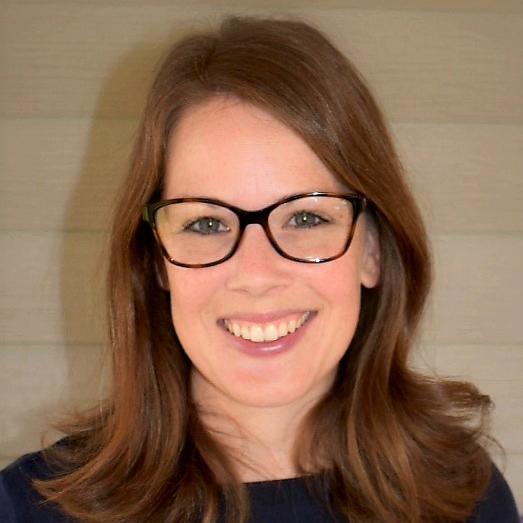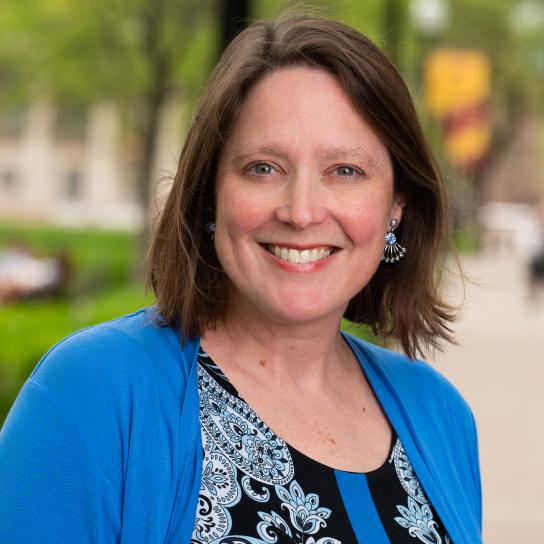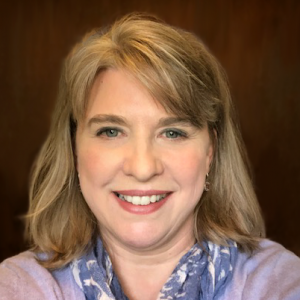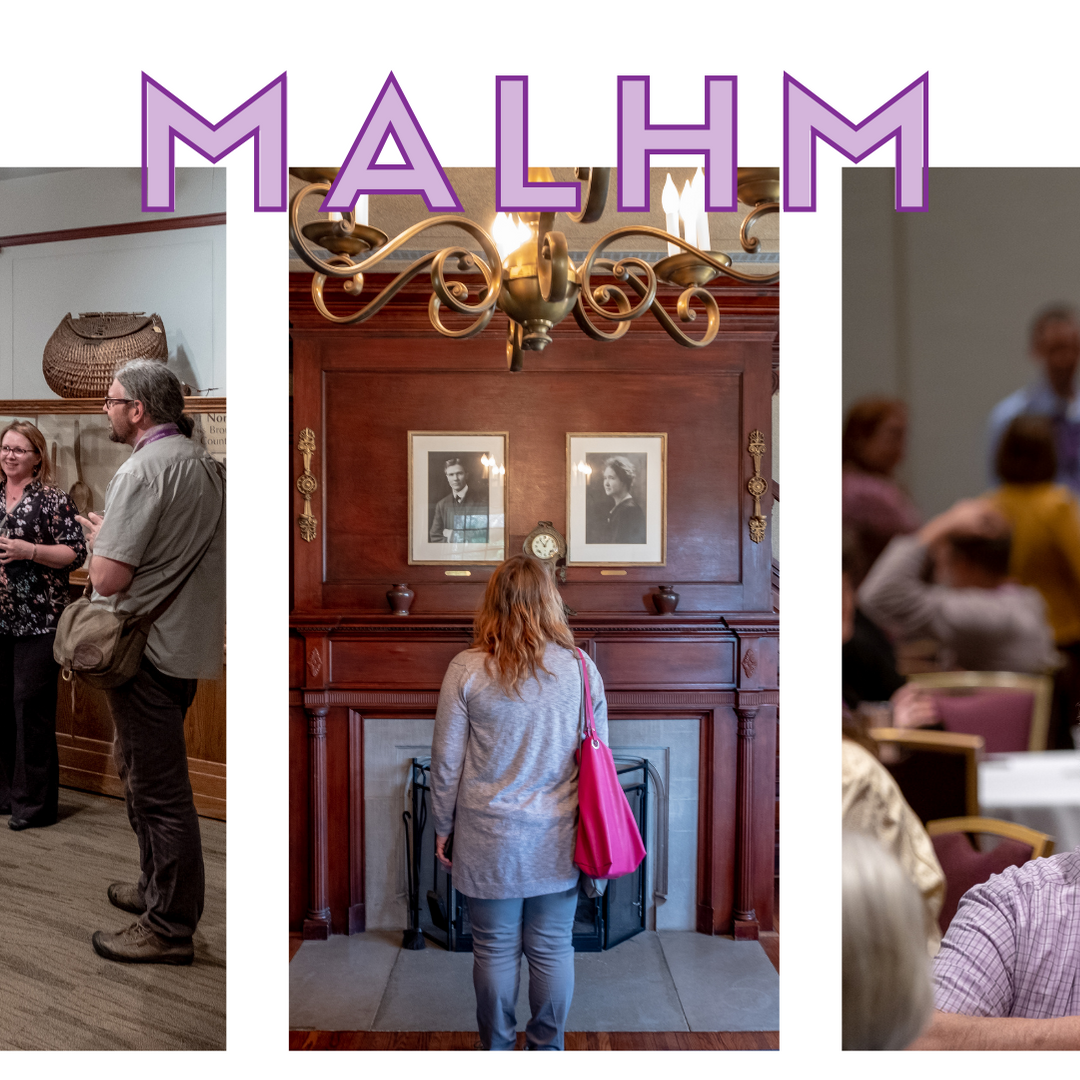Quick Summary
Minnesota Digital Library staff attended the Minnesota Alliance of Local History Museums Annual Conference on April 24-26. While there, they connected with MDL contributors and gained some key insights from the conference sessions.
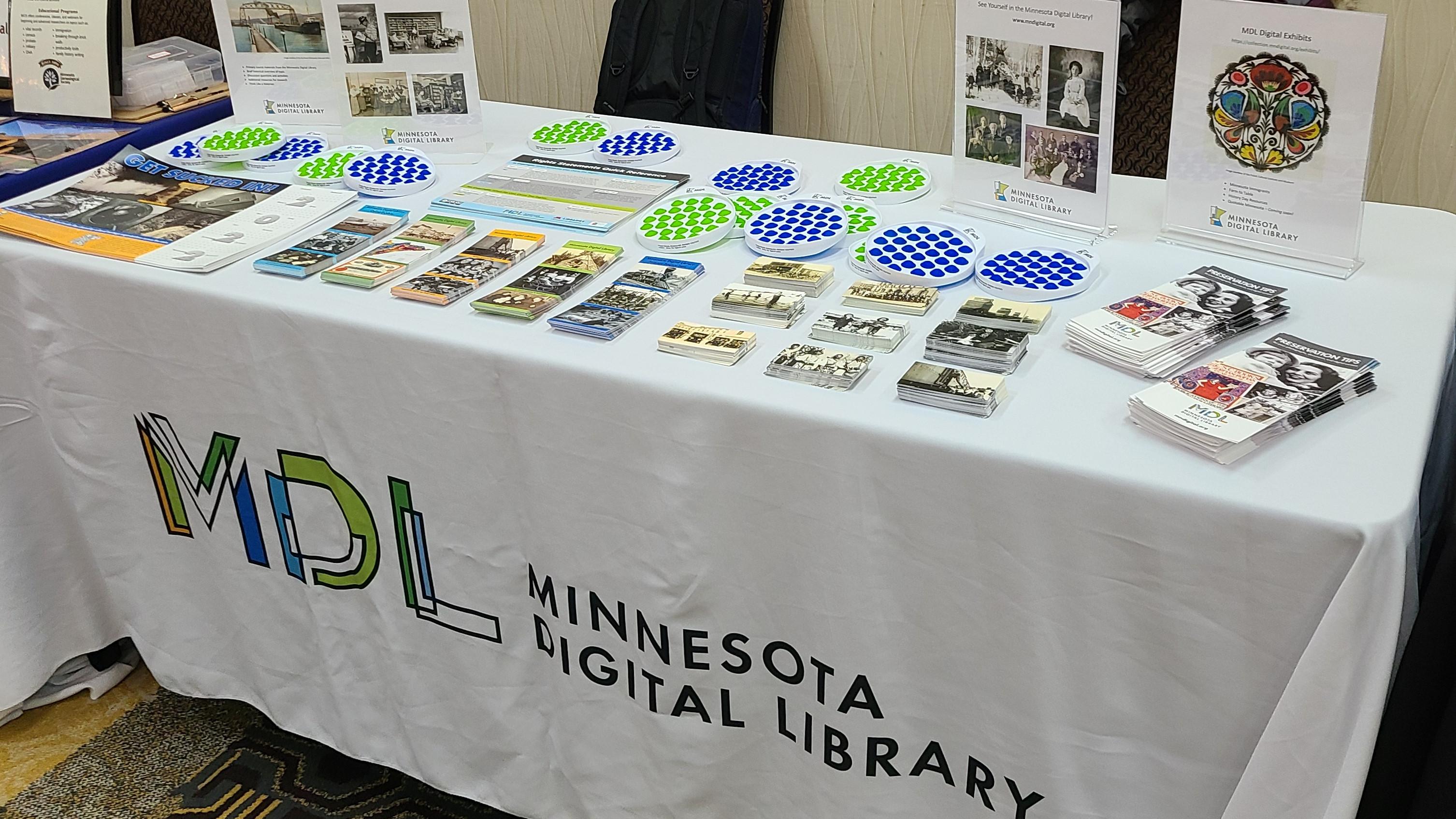
Many of the MDL's contributors are members of the Minnesota Alliance of Local History Museums (MALHM), a professional organization of historical societies large and small from all over the state. MDL staff recently joined MALHM members at their annual meeting and conference in Alexandria where we had many great opportunities for networking and sharing ideas with each other. We staffed an information table and attended conference sessions, where we gained numerous insights and takeaways meaningful to a broad spectrum of cultural heritage organizations.
Here are some that resonated with us that we wanted to share with you:
- Collections planning is not just for physical collections. Plans should consider WHY we collect, as well as what to collect.
- The importance of safeguarding your organization from fraud and financial threat, even if you don’t think you would be a target.
- The Minnesota Historical Society’s department of Native American Initiatives is developing training for better interpretation and understanding of Minnesota’s Native nations.
- Wikipedia should not be the only place people get information on local history, but it is often the first place students and researchers visit. There are opportunities for history organizations to edit Wikipedia articles for accuracy and provide verifiable sources to take advantage of Wikipedia’s worldwide reach and influence.
- Students and professors engaged in digital humanities coursework can partner with history organizations to create projects beneficial to both participants. Digital humanities projects, such as timelines, data visualization, and mapping, use technology to answer humanities questions and enhance public access to history and collections online.
- Exhibits co-created with community groups allow these groups to tell their own stories. The cooperative planning process leads to more partnerships, larger audiences, and better relationships in the future.
- A lot of organizational creativity came out of the challenges of the pandemic.
MDL’s Molly Huber also joined Minnesota Historical Society staff as a presenter for a round table discussion on digitizing newspapers and more. Overall it was a great experience and we were happy to connect with our colleagues in person again.
